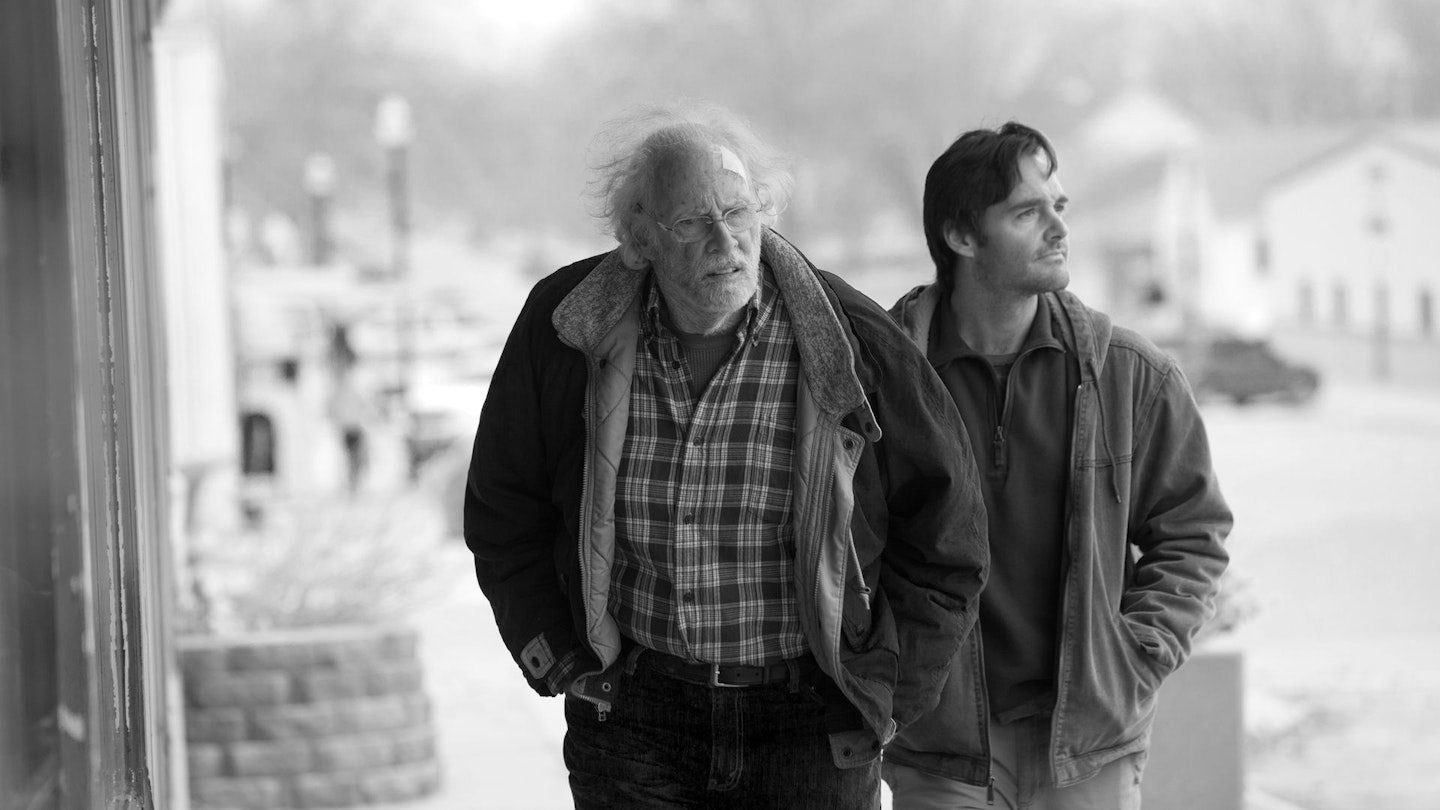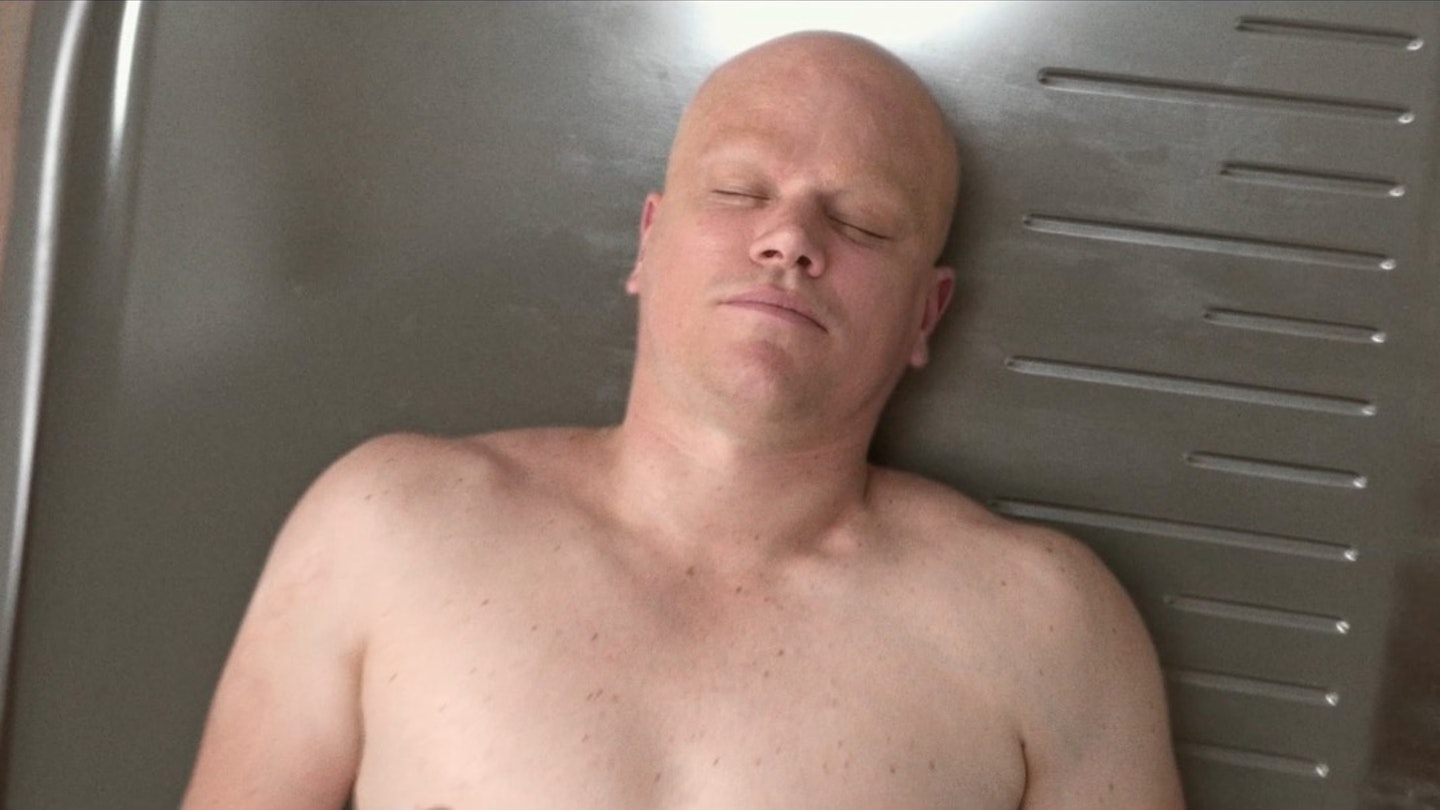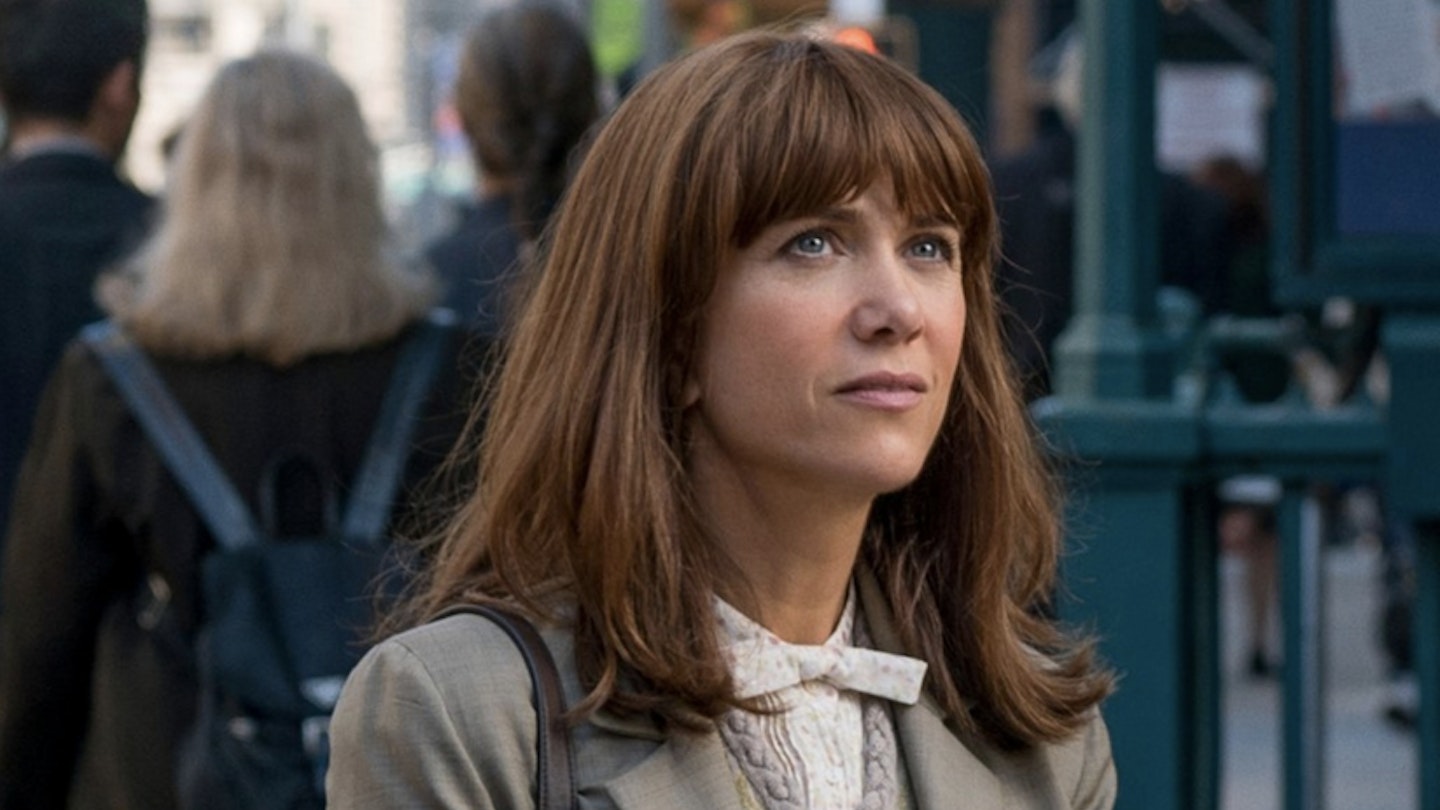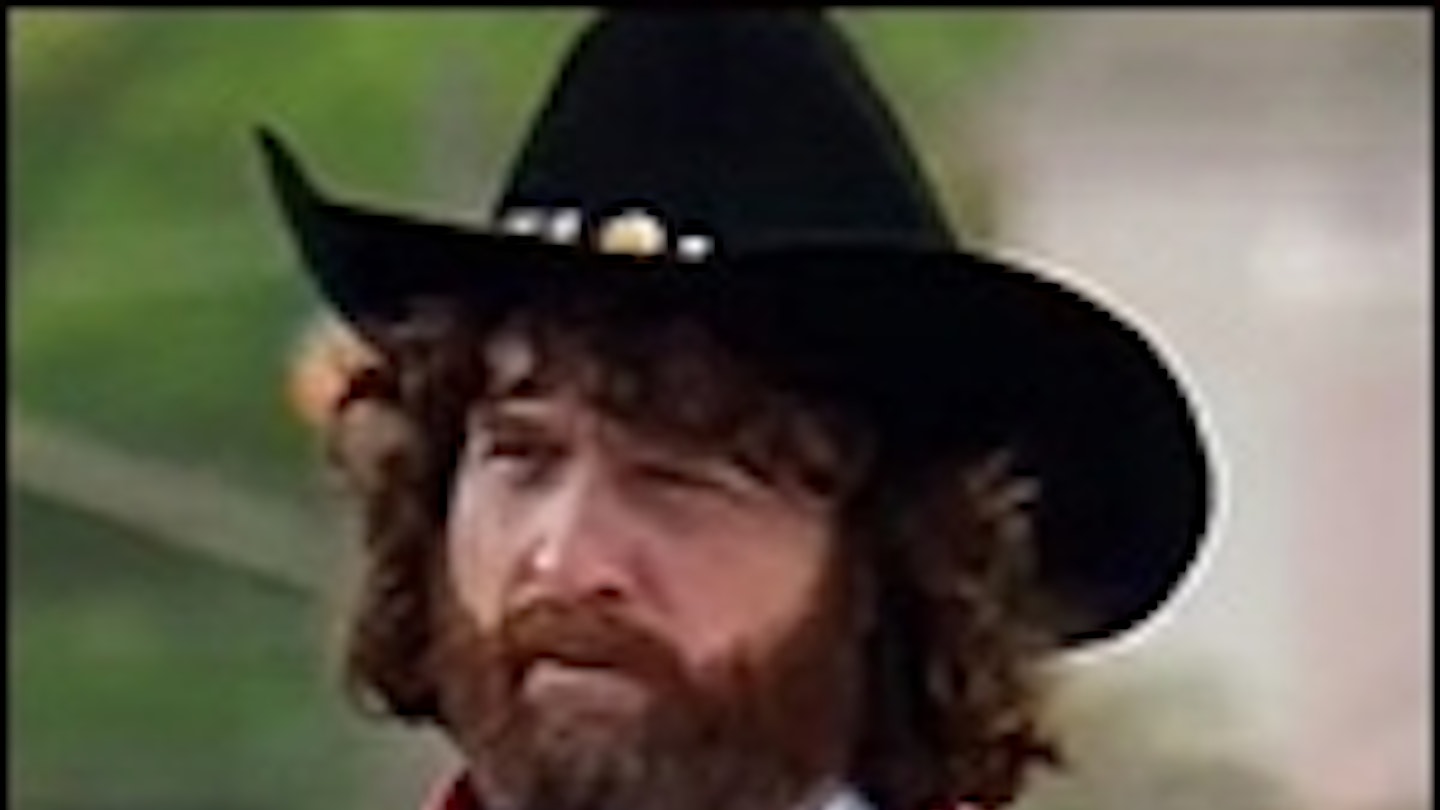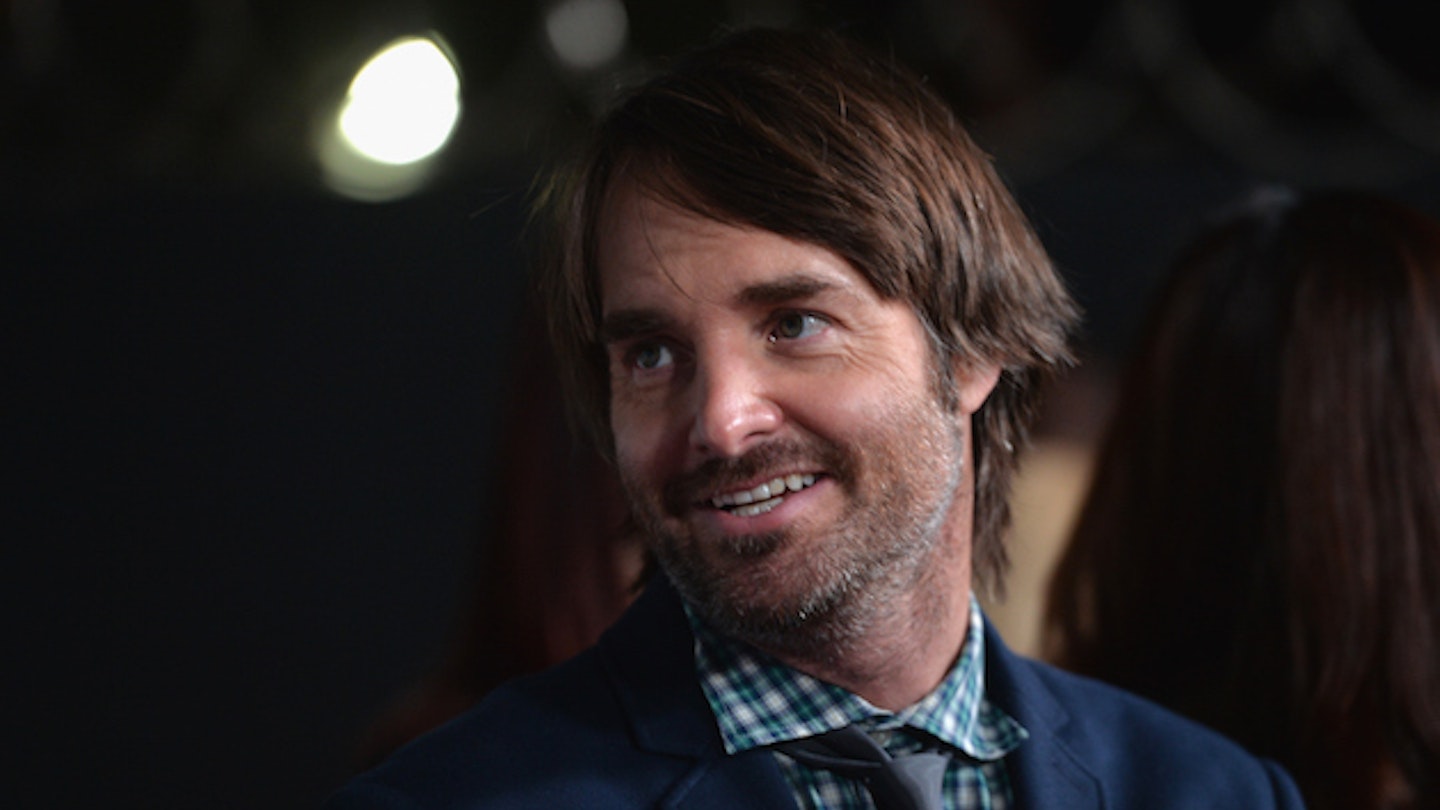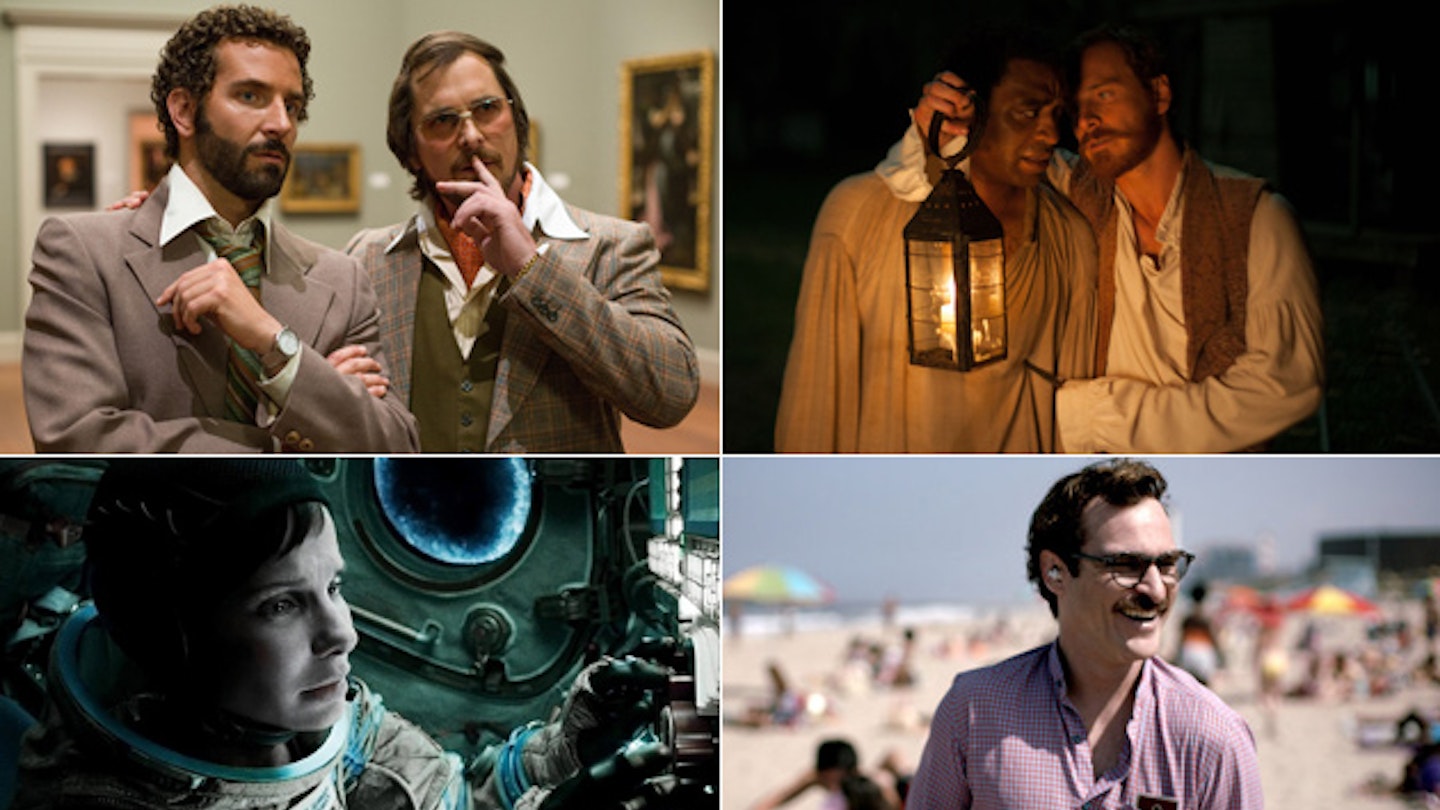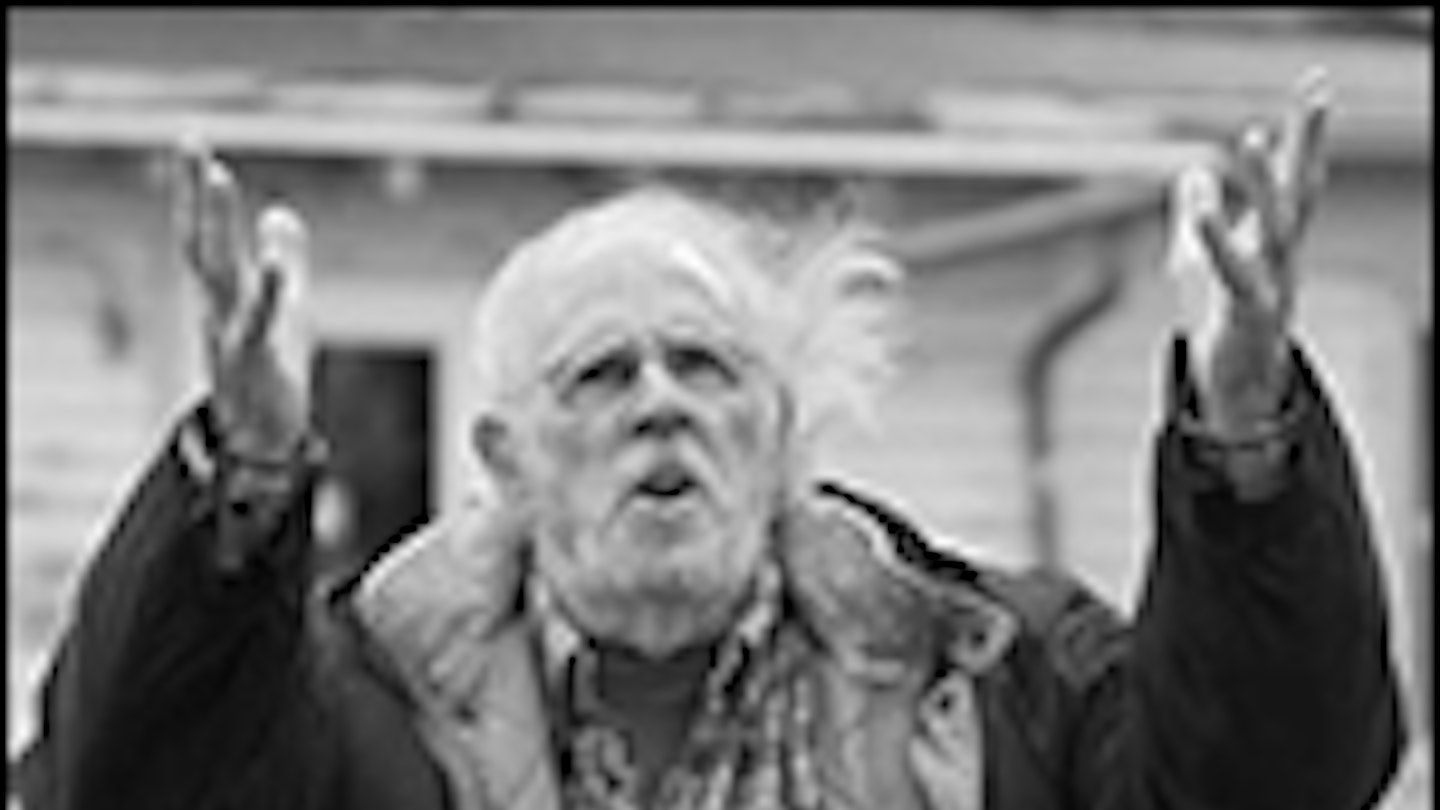With six features under his belt, Alexander Payne is starting to show his hand as a mainstream American auteur. And on the surface, Nebraska would appear to be a further exploration of the road-movie genre that he began with Sideways, in which two old college friends discovered more differences than commonalities during a wine-tasting tour of Santa Barbara. But really, like almost all of his films, it shows a fascination with married couples — the dynamics of their relationships and their identity as individuals, both of which feature heavily in this nuanced, poignant comedy.
Reflecting the film’s interest in roots, Payne’s film is shot in black and white, which mostly comes into play when Woody (Bruce Dern) and David (Will Forte) turn off the freeway and head into the wide-open plains. This is the real Nebraska of the story, since it is Woody’s birthplace: the place where he met his wife and the place they very soon left together. It remains much as he left it, a vast rural yonder punctuated by churches, barns and rusting farming equipment, a world in and of the past. It’s worth noting here that we see all this through David’s eyes, not Woody’s, since Woody is already in a state of semi-aware limbo, in the first clutches of a state of dementia that he won’t be coming back from.
It’s also worth noting that Woody and David won’t be alone for long, joined on their escapade when Woody’s wife Kate (June Squibb) jumps on a Greyhound bus and meets them in her and Woody’s old stomping ground. This is where Bob Nelson’s effortless screenplay really gets to work, as David starts to find out more about his mom and dad and, by extension, himself. In the town of Hawthorne, the Grants visit Woody’s brother and sister-in-law, and old family grudges and feuds start bubbling to the surface. Chief among them is the topic of money; taking Woody at his word, long-forgotten debts and favours are brought to the table: it is literally payback time.
These hometown scenes are the core of the movie, with David — like George Clooney’s Matt King in The Descendants — in the role of amateur detective, trying to put together some of the pieces of his father’s life. And things get a definite kick in the pants with the arrival of Ed Pegram (Stacy Keach), an ageing bully who recalls a grown-up version of Back To The Future’s Biff Tannen (perhaps not an idle comparison, since this, too, is an origins story). Keach is simply superb throughout, a rattlesnake waiting to strike, and when he does, it is an emotionally brutal, indelible moment.
But, then, all the performances in this affecting film are just as good. Forte plays a very fine straight man, while Squibb transforms from an awful henpecking housewife into one of the film’s most adorable characters. Dern, though, does the best work, making the befuddled, proud, boozy Woody a man worthy of our time and sympathy. It might go over the heads of younger audiences, but Nebraska will surely connect with middle-aged audiences and older with its almost Tokyo Story-like tale of generations, albeit with a slightly more wistful ending. The laughs — if, and not when, they come — derive from wry recognition (such as the way Kate and Woody refer to their friends and neighbours by their full names). Like most parents, their life together is a matter of to and fro, underpinned by a thick seam of affection and a shared understanding of who they used to be.
